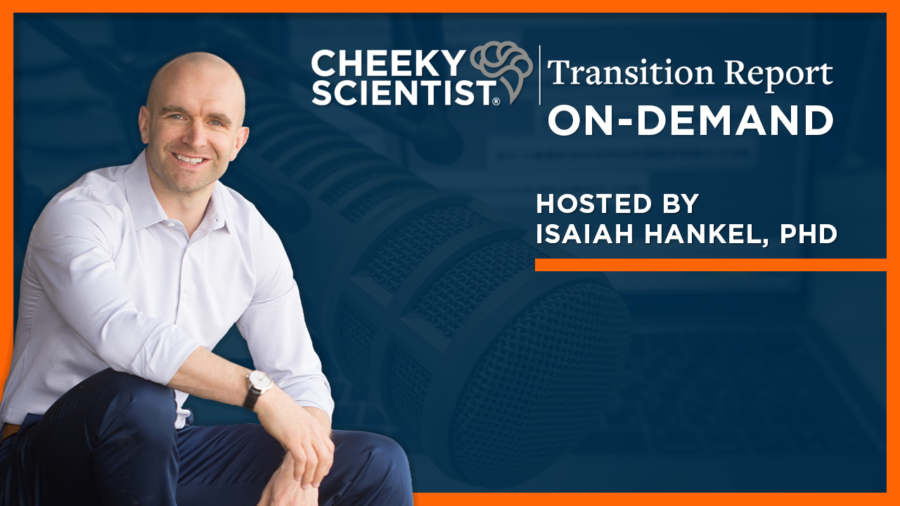Hosted By

Chief Executive Officer Cheeky Scientist

Join Isaiah as he discusses why you should set up deliberate times to work on your job search instead of trying to stay busy and why this will make a big difference
Here’s a quick rundown of this week’s episode…
- First, Isaiah reveals what it takes to master a skill and what is the fundamental difference between elite and average performers
- Next, Isaiah dives deep into what it takes to be a top performer in whatever skill you’re trying to master
- Finally, Isaiah explains how this relates to you job search and why you should always prioritize being productive over being busy
From This Week’s Show…
What It Takes To Master A Skill
You may have heard that mastering any skill, whether it’s business, surgery, playing the violin, or fencing, requires 10,000 hours of practice. What you may not have heard is that this practice is best done in short bursts, not in long, drawn out days.
Studies reviewed in Psychological Review have shown over and over again that the fundamental difference between elite versus average performers in any field is the number of hours the elite tier spends on deliberate practice —the uncomfortable, methodical work of stretching your ability to execute a skill.
Elite performers deliberately practice three times longer than average performers. That’s not the surprising part. The surprising part is that the average performers practiced more hours overall. So, what gives? The average performers work harder than the elite performers and don’t get rewarded for all this effort? No, they don’t. It’s how you practice that matters, not how long.
Elite Performers Make Better Use Of Their Practice Time
When researchers compared the mean time both sets of performers spent working versus the waking hours of the day, they found that average performers passively spread their work throughout the day.
The elite performers, however, were very selective with their efforts. Instead of spreading their work out passively, they consolidated their work into short bursts. These performers’ working time versus waking time charts showed two sharp peaks—one in the morning and one in the afternoon. Elite performers spent more time in deliberate practice but only worked an average of 3.5 hours a day.
How This Relates To Your Job Search
Are you putting in hours of deliberate practice for your job search? If not, how can you get any better at it?
Unfortunately, most PhDs would rather feel busy in their academic endeavors, even once they’ve decided to leave academia, than be productive in their job search. You can set your agenda for your life, or you can follow someone else’s agenda, like your academic advisors. The choice is up to you.
The biggest problem with being busy all the time is that it keeps you reliant on other people. Busyness keeps you dependent on other people. This herd mentality is your brain’s default mindset, and it’s what you have to actively work against every day if you want to be successful in your job search and career.
The only way to stop blindly following others is to stop doing what others want you to do. That means setting firm boundaries with people and continuing to spend more and more time on your own goals.
Staying busy doing what you’ve always done instead of being productive in your job search will only lead to giving up on your career dreams and staying yet another year in academia or in another job you don’t enjoy.
If you’re ready to start your transition into industry, you can apply to book a free Transition Call with our founder Isaiah Hankel, PhD or one of our Transition Specialists. Apply to book a Transition Call here.










